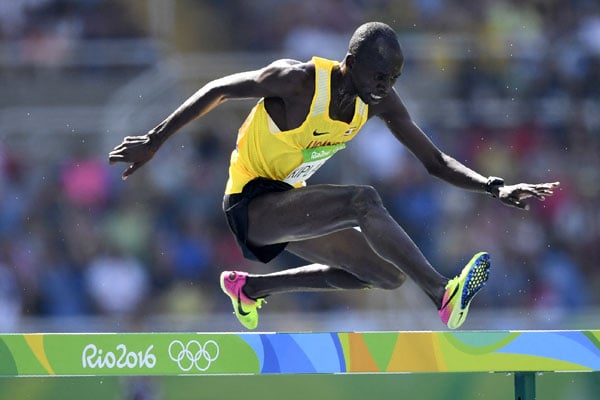Prime
Police remain top tormentors of journalists

Police officers rough up Mr William Tamale, a BBS TV journalist, outside Dr Kizza Besigye’s residence in Kasangati Town Council, Wakiso District, after the 2016 elections. PHOTO BY ABUBAKER LUBOWA
Kampala- Police have once again emerged top on the list of institutions violating the rights of journalists across the country, a report shows.
Titled, “Critical Journalism under Attack,” the 2017 press freedom index compiled by the Human Rights Network for Journalists (HRNJ) shows 113 cases of violation and abuse of journalists’ rights, with police implicated in 83 cases, followed by the Uganda Communications Commission with six cases and the Judiciary coming third with four cases reported.
Police spokesman Emilian Kayima and his counterparts in Judiciary and UCC were not available to respond to the findings.
The three are government institutions journalists would naturally run to when aggrieved to seek redress.
However, their emergence as the top tormentors of journalists raises questions.
Mr Robert Ssempala, the executive director of HRNJ Uganda, said the clampdown on the media houses and journalists by the government agencies is not the best option.
“Media freedom has been badly hit by the political contestations in this country. You must have seen that UCC, which is supposed to nurture us and help us grow, instead turning to controlling…that situation is not desirable to us. We must do something drastic if we are to safeguard our position from police attacks,” he said.
Mr Med Kaggwa, the chairperson of the Uganda Human Rights Commission, said the findings by the HRNJ Uganda do not differ from those by the commission and challenges the government to abide by the principles of democracy and rule of law.
“Developing democracies such as Uganda require vibrant, free, and independent and gender sensitive media so that they can express themselves freely and raise their issues. This is a prerequisite for them to develop the institutions and allow everyone to participate in their governance,” Mr Kaggwa said.
Mr Mogen Pedersen, the Danish Ambassador to Uganda, said the report corroborates what the Reporters without Borders had earlier issued. The 2017 World Press Freedom index ranked Uganda at 117th position, down from 112th in 2016, out of 180 countries.
Reported cases
Police violations. The 2017 press index findings show arrests and detention of journalists as the most prevalent with 45 cases, followed by assault (27 cases). Blocking journalists from accessing news locations came in the third place, with 11 cases reported, while incidents of malicious damage of journalists’ equipment came in fourth place, with 10 cases registered.
Cases against UCC. There were also two cases of switching off radio stations on the orders of UCC and of breaking into media houses; four cases each of threatening violence against journalists and of journalists suspended from work on orders of UCC. The Judiciary is mainly accused of blocking journalists from accessing court sessions.




